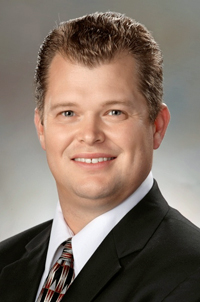
He is a 1999 graduate of the University of Charleston (Charleston, WV) sports medicine program. In 2003, Cassell completed his master’s degree from Marshall University.
Cassell has spent the previous 15 years in the collegiate ranks. In 2004, he became Purdue North Central's first full-time athletic trainer. During this time, Cassell built a solid program that included concussion testing, physicals, and athletic training classes. In 2016, Cassell was rewarded for his efforts by being inducted into the PNC (now Purdue Northwest) Athletic Hall of Fame.
For the past two years, Cassell was the head athletic trainer for Calumet College of St. Joseph. With help from the athletic director, Cassell was able to revamp the athletic training program by bringing physicals to campus, improving concussion testing procedures, implementing a cardiac testing program and adding a second athletic trainer. For his efforts, the Chicagoland Collegiate Athletic Conference (CCAC) awarded Cassell with the 2017 Athletic Trainer of the Year award.
Cassell, a full-time employee with the hospital's rehabilitation services, will spend much of his time on the Winamac athletic fields, gymnasium, and in the training rooms providing preventative services, emergency care, clinical diagnosis, therapeutic intervention and rehabilitation of injuries and medical conditions.
Winamac athletic director Bill Ball said, "The Winamac Athletic Department is very appreciative of PMH providing us an athletic trainer. Having one gives our coaches the professional insight on how to treat different types of injuries and allow our coaches more time to spend coaching at practice, rather than having to tend to every bump and bruise that occurs. We also believe our student athletes will benefit significantly from Doug's services because a quick diagnosis and treatment plan will hopefully minimize the amount of time an athlete would be sidelined should a serious injury happen."
Cassell first started as a team manager while in high school, and when his athletic director sent him to a camp for athletic training, he knew he had found his calling. Cassell has seen the role of athletic trainers change dramatically over time.
"Athletic trainers used to just tape up the players before practices and games," he said. "Now we must be active in the care and health of each athlete. We assess injuries, and recommend a proper course of action, educate on proper weight training, nutrition and rehabilitation. We even monitor the weather conditions to make an informed decision about canceling practice or a game."
His first day was Monday, July 30 as practices for fall sports began.
"The beginning of a new year is always an exciting time," Cassell said. "As with coaches and players, that night before is often restless and anticipatory, but come the first whistles it is time to go to work."
Another significant responsibility of the position will be working with athletes in the prevention of concussions. Pulaski Memorial Hospital is sponsoring the ImPACT Concussion test that will be given to each student-athlete. The initial test will set an individual’s baseline, and if a player is involved in a collision or any hit to the head, the test is re-administered, and deviations can quickly identify if a concussion has occurred.
"As a father of athletes, and as someone who played sports myself, I understand the need for proper athletic training," said Pulaski Memorial CEO, Tom Barry. "PMH is proud to offer these services to Eastern Pulaski Schools. The health and wellbeing of our community members, particularly those of our student athletes is something all PMH associates are concerned for."
Cassell takes great pride in watching the athletes learn and succeed.
"To me this role is more than taping ankles, and icing sprains," he said. "This role allows me to be an educator. There is no better feeling than to watch student athletes, who have learned to work hard and to prepare the right way, attain success. It is what motivates me every day. It is why I love my profession."







